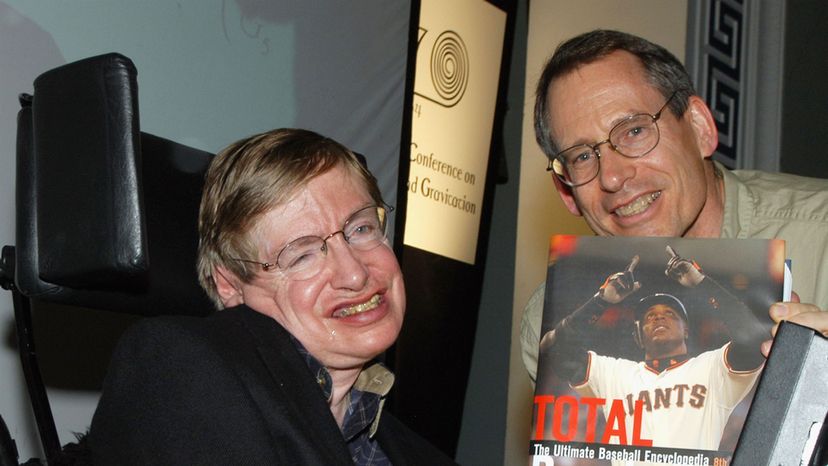Black Hole Science

Much of Hawking's work focused on characterizing and understanding black holes, the massive entities that disrupt space-time and stem from the collapse of stars.
To begin to understand Hawking's contributions, we must look at the tiny, subatomic particles that comprise everything in our universe. For instance, particle pairs are constantly appearing and disappearing together. In every pair, there's a particle and an antiparticle with the opposite properties, like a proton and its corresponding antiparticle, the antiproton. Without being interrupted, these particles simultaneously appear, cancel each other out and disappear as fast as they arrived.
Advertisement
But Hawking wondered what would happen to these particles if they were face-to-face with a black hole. In the 1970s, Hawking put forth the idea that a black hole likely sucks in one particle -- usually the antiparticle -- while allowing the other particle to escape. According to Hawking's theory, it's this leftover particle at the entrance of a black hole that ends up being emitted as a type of radiation called Hawking radiation.
He hypothesized that since the other particle falls into the black hole, it helps reduce the mass of the black hole by that incremental amount. Over time, black holes decrease in mass and collapse, resulting in a huge explosion that spits out matter throughout space. In a sense, Hawking's work suggests there's a lot more going on in black holes and the areas around them.
Since researchers have to measure the presence of black holes indirectly, it's been difficult to confirm or counter Hawking's theory. One group created a miniature black hole of sorts in a lab and observed that Hawking radiation could be real [source: Shiga]. Still, others think the theory can only be confirmed by evidence from a real black hole.
Then followed the information paradox -- the debate surrounding what happened to qualities of matter once inside a black hole.
Hawking wasn't afraid to be bold in drawing conclusions. In 1997, he made a bet with colleague John Preskill, arguing that information is permanently lost once it falls into a black hole [source: Hogan]. But in 2004, Hawking admitted that information isn't lost or channeled into another universe, but rather it seeps back into the existing universe in distorted form.
Hawking publicly admission of defeat confirmed his attitude toward science as a field that's constantly adding to and correcting itself. His work on black holes might not seem particularly groundbreaking at first glance, but it spurred conversation that might not have taken place otherwise
What did Hawking think about the origins of the universe? Find out on the next page.